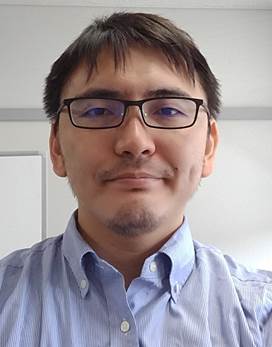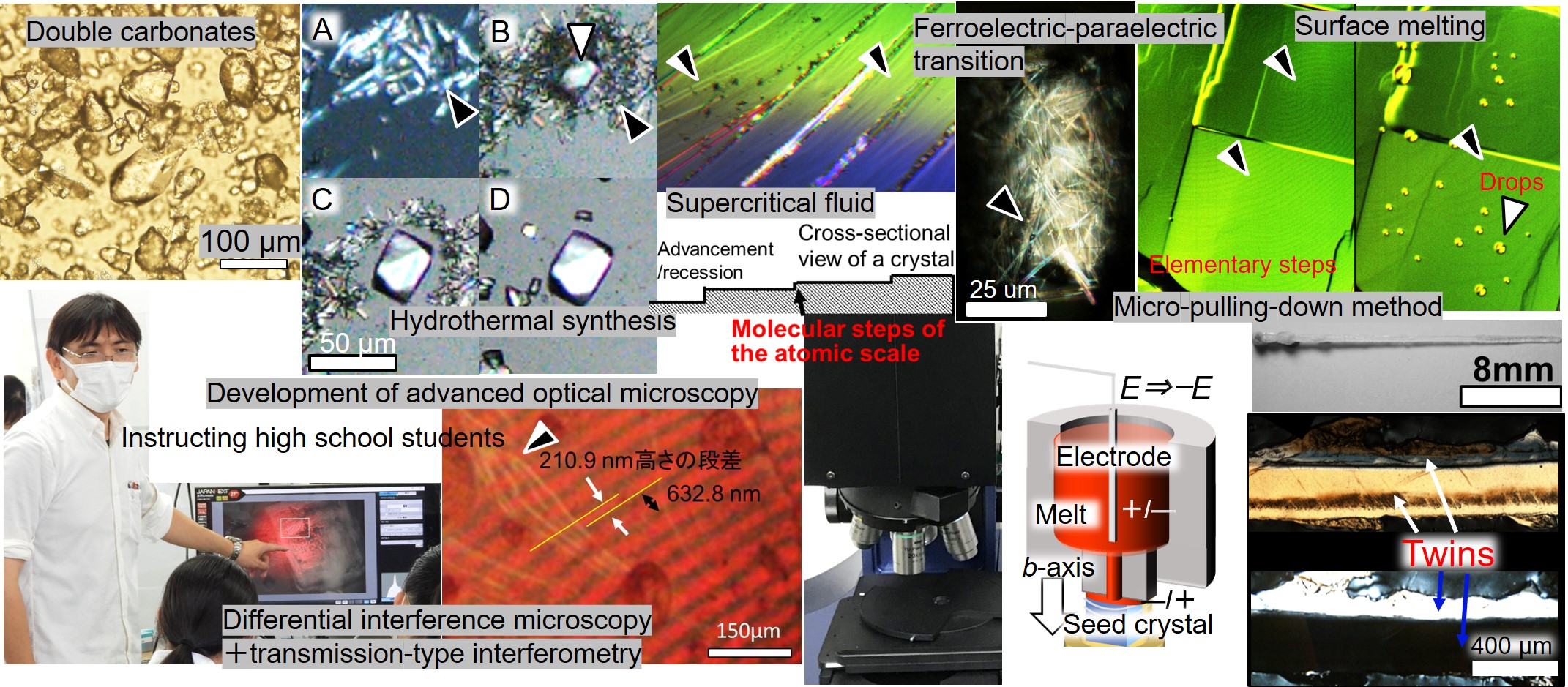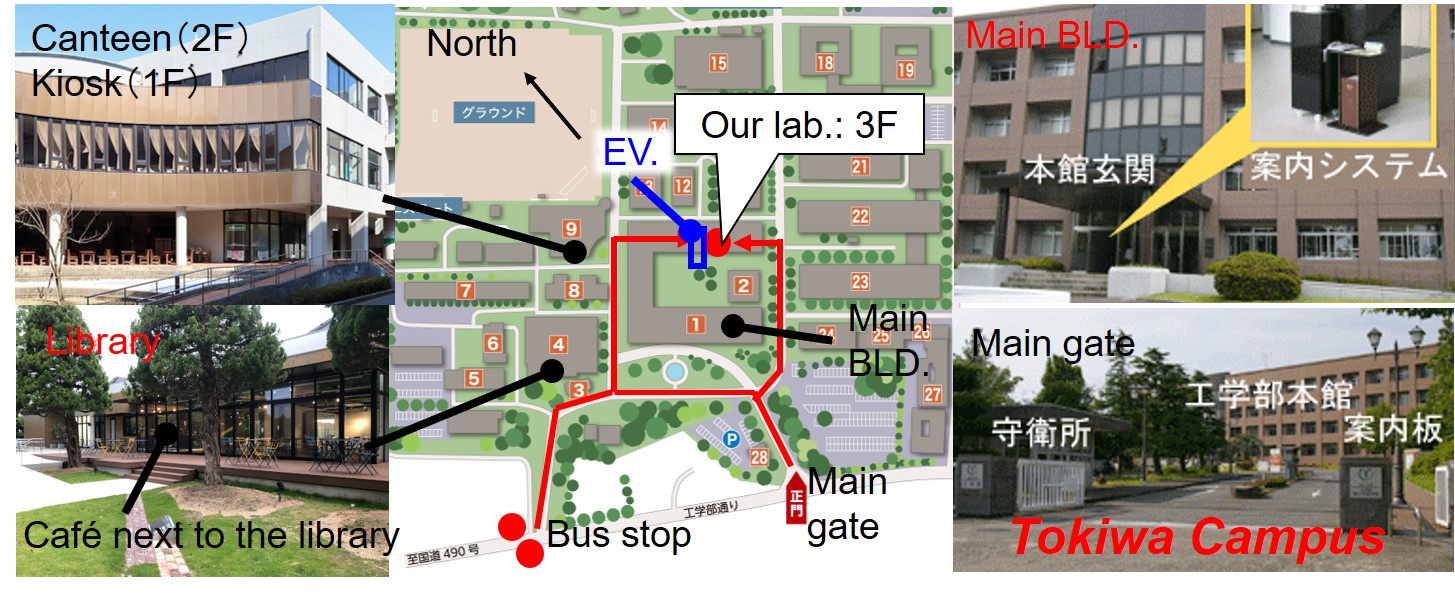Our affiliation: The inorganic chemistry section in the Department of Applied Chemistry, Faculty of engineering, Yamaguchi University; Expertise: Crystal Growth; Crystal Engineering.
We hope to collaborate with researchers from a wide variety of countries to strongly promote research. We would like to invite great researchers for the discussion and experiment via the Inviting Excellent Researchers from Other Countries to Japan program.
We deeply welcome talented postdoctoral fellows like you, and encourage you apply for Postdoctoral Fellowships for Research in Japan with us. Would you like to explore the undiscovered fields through the research of crystal growth together?
We offer attractive programs and research to enable you to overcome difficulties as engineers in the future, and therefore, we hope that students who wish to study abroad in Japan can gain significant research skills at Yamaguchi University (Application Procedures). We look forward to seeing you.
Perspective
We are pursuing the truth of crystal growth science. We are developing epoch-making optical methods, and attempting to realize an unattained in-situ observation technique. We aim to clarify long-standing problems in various fields such as material science, earth science, and environmental science, and discover new phenomena of crystal growth. Subsequently, utilizing the knowledge, we will establish the growth and design technique of crystals with high functionality. We plan to suggest new crystal growth science and engineering to society.

Harutoshi Asakawa
Introduction to crystal growth
Short movie of the crystal growth (English version)
Theme
*The images on our site are forbitten to be copied, downloaded, and used without any permission. Copyright© 2024 Harutoshi Asakawa, Yamaguchi University

Crystal growth of double carbonates:
Dolomite is a crucial mineral for understanding the relationship between the formation of the earth and environmental change in terms of seawater. We clarify the "dolomite problem", which is a long-standing issue in the earth science field.
Comprehensive understanding of the hydrothermal synthesis:
The hydrothermal method is the technique that can sufficently synthesize materials, using high-pressure water at more than 100 ℃. The hydrothermal method can be utilized for a wide variety of materials. We clarify the reasons for the utility of the hydrothermal method, using the in-situ observation.
Crystal growth in the supercritical fluid:
We explore the features of the crystal growth in the supercritical fluid by the in-situ observation. Using such a technique, we are trying to solidify carbon dioxide as carbonates.
Crystal growth near the Curie temperature:
We reveal the relationship between the crystal growth and ferroelectric-paraelectric transition.
Surface melting of organic crystals:
We clarify the origin of surface melting which is considered as the precursor phenomena of the melting process, using organic crystals.
Engineering twin crystals by the micro-pulling-down method:
We build the technique to periodically induce twin crystals during the growth of crystals by, using the micro-pulling-down method.
Optimal surface structure of the photocatalyst:
We attempt to visualize the optimal surface structure of active photocatalyst crystals.
Development of an advanced optical microscopy and high-pressure observation chamber:
We develop the only observation apparatus in the world to understand crystal growth at the atomic level.
Access
Airplane: Tokyo (Haneda)→
Yamaguchi (Yamaguchi-Ube)→Our campus (Ube) by taxi (2000 yen)
Bus from Yamaguchi-Ube Airport to Ubeshinkawa Station (310 yen): Time table
here
Shinkansen (Superexpress): Shin-Yamaguchi Station→Ubeshinkawa Station→Our campus (Ube) by taxi (1500 yen) or bus (230 yen)
Bus from Ubeshinkawa Station to Kougakubu-mae(in front of faculty of engineering): 33, 34, 74, 75
宇部新川駅→工学部前
(Navitime);工学部前 (kougakubu-mae)→宇部新川駅(Ubeshinkawa Station)
(Navitime)
【Yamaguchi university】Tokiwa campus (short movie)
My room (Harutoshi Asakawa):Main BLD.333;Tel:0836-85-9631 (+81-836-85-9631);mail:hasakawa@yamaguchi-u.ac.jp





